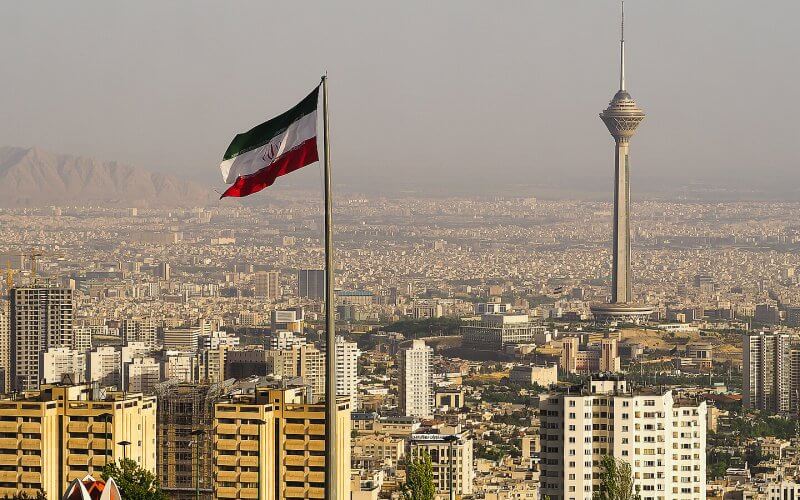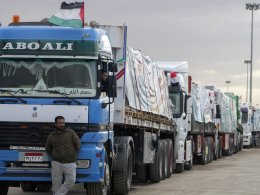Iran's strategic expansion in Latin America, by aligning itself with regimes that could pose a threat to democracy and regional stability, has become a concern for the region, according to a Tuesday report published by U.S. Southern Command magazine, Diálogo Americas.
Brazilian authorities thwarted a Nov. 8 Hezbollah terrorist plot against Jewish targets, and the seriousness of Iran's presence in the region was highlighted again on April 14 after the Argentine government raised its terrorist alert level to “high” as a result of Iran attacking Israel with more than 300 drones and missiles.
As a consequence, Argentina intensified its security measures around airports, border areas, and Jewish institutions.
For its part, the Argentine Federal Police announced an “orange alert” and in Buenos Aires, police patrols increased around synagogues and Jewish community centers. The heightened state of alert led to reinforced surveillance at key locations, including the Israeli Embassy and the presidential house.
At an April 12 symposium led by the Organization of American States (OAS) in Washington, experts and diplomats highlighted the Iranian threat in Latin America, emphasizing the need to confront anti-Semitism and counter Iran's negative influence amid heightened tensions in the Middle East.
OAS Secretary General Luis Almagro highlighted the importance of the fight against anti-Semitism to defend democracy and human rights, pointing out the links between autocratic regimes in the Americas and Iranian representatives.
Meanwhile, concerns continue about possible attacks on Jewish institutions in Latin America, with experts such as Luis Fleischman of Palm Beach State University warning against underestimating Iran's capabilities and intentions.
“Iran penetrated Latin America a long time ago. It not only carries out activities using its embassies as espionage centers, but also in combination with local and international criminal organizations, mosques and with a highly developed propaganda apparatus,” Fleischman warned in Diálogo Americas.
This escalation in security measures occurred for the second time in just three days, initially sparked by U.S. intelligence reports of a possible Iranian attack on Israel. On April 11, Argentina's highest criminal court affirmed Iran's involvement in the 1994 attack on the Asociación Mutual Israelita Argentina, which resulted in 85 deaths and 300 injuries.
The masterminds behind the attacks in Brazil, both wanted by Interpol and linked to a Shiite cultural center in Brasilia, were instrumental in recruiting Brazilians for Hezbollah, according to government reports.
In March, the Office of the U.S. Director of National Intelligence (ODNI) released its annual community threat assessment revealing that China, Russia and Iran have the ability to disrupt the US election cycle. of 2024.
Although China's activities in America have received much attention, Iran, the only foreign power responsible for recent attacks on American citizens, is has been the center of several efforts to undermine U.S. interests in Central and South America, ranging from Washington’s efforts of establishing diplomatic ties, trade, and economic aid.










